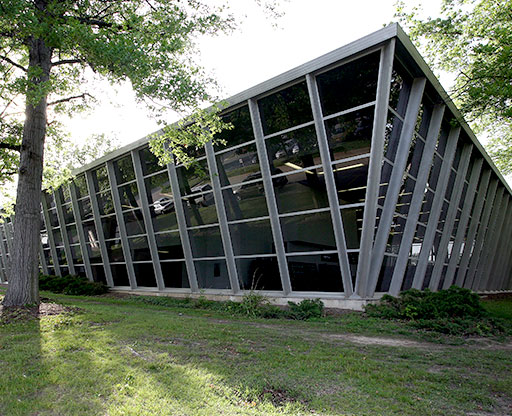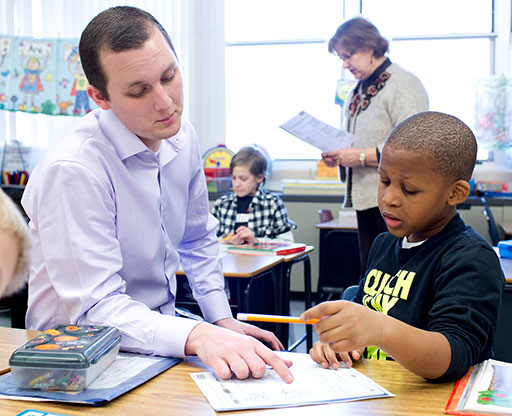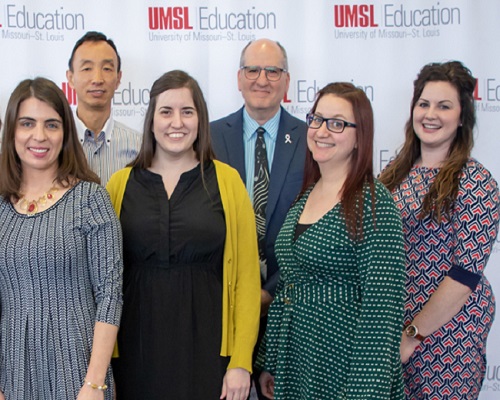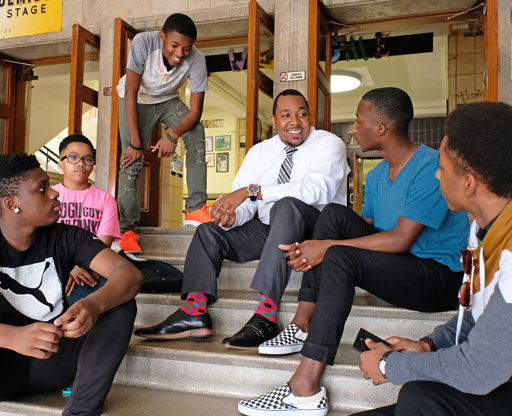Create learning experiences that matter with a degree in Elementary Education with an emphasis in Special Education.
Special Education is the practice of educating students in a way that addresses their individual differences and special needs. Educators help individuals with special needs achieve a higher level of personal self-sufficiency and success in school and in their community which may not be available if the student were only given access to a typical classroom education.
Program type:
Major, BSEd
Format:
On-Campus
Take the next step
Request more information below:

Bachelor of Science in Elementary Education -
Special Education Emphasis
The BS in Elementary Education, with an emphasis in Special Education, focuses on engaged, experiential learning that introduces and supports instructional opportunities that orient and improve the development of sound learning communities and support classrooms of diverse student populations and abilities. Students are exposed to a variety of course content platforms, opportunities for student research and community collaborations and partnerships. Educator candidates actively engage in unique practicum experiences in the studio school model for clinical practice.
The Special Education endorsement may be added by passing the appropriate area exam. You’ll also have the opportunity to earn an additional credential in second language learning (TESOL) that will make you highly qualified and marketable.
Outcomes and Career Outlook
Upon completion of the program, graduates will be well prepared to become a community educator who can impact all students in a wide variety of settings, and with a much broader understanding of education’s role in society. Our graduates make a collective impact as faculty members in the differentiated staffing model, with many hired directly into the studio schools or districts where they complete their clinical preparation.
Employment of special education teachers is projected to grow up to 3% to 2029, with a median annual salary of $61,640, according to wage and employment data from the U.S. Bureau of Labor Statistics.
61,640
3
Career Opportunities
- Classroom Teacher, Elementary School
- Classroom Teacher, Middle School
- Classroom Teacher, Junior High School
- Classroom Teacher, High School
- Special Education Classroom Teacher
The BSED in Elementary Education with Emphasis in Special Education offers teacher certification in Elementary grades 1-6 and the option to add K-12 Special Education certification with an additional state assessment. The Emphasis in Special Education provides regular classroom teachers with the skills to teach students with a variety of learning needs, and provides the courses needed to pass the assessment and add Mild/Moderate Cross Categorical K-12 Special Education teaching certification.
The initial teacher certification is in Elementary Education grades 1-6.
Plan of study
All majors must meet the general education requirements of the university in addition to completing degree-specific curriculum requirements.
Review Full Degree Requirements Download 4-Year Academic Map
Non-Missouri Residents: Prospective students are responsible for reviewing the NC-SARA state authorizations page to see if this program is offered in their state throughout their program and to review the licensure or certification requirements for the state in which they reside.
Student organizations
Make new friends and learn new skills by joining one of our Recognized Student Organizations. Here are several opportunities you may be interested in as an education major:
- EduCATE: Collegiate Association of Teachers and Educators
- OSI Leadership Education Programs
- Kappa Delta Pi, Mu Iota Chapter
- Student Government Association
- Students of the University of Missouri
Internship opportunities
The College of Education hosts many centers and initiatives that enhance student experiences in our programs and work with more than 36 different public, private and charter schools throughout the region. We also sponsor eight charter schools.
Honors College
The UMSL Honors College is a certificate program that can be paired with any major without adding extra classes or extending time to graduate. Classes in the Honors College are seminar-style, meaning that they are based in reading, writing, discussion, and critical thinking. This unique class format fosters an intellectual climate centered around democracy, diversity, civility and academic excellence.
Undergraduate research
We encourage and support students as they engage in exciting activities in and outside of the classroom that enrich their academic and professional understanding of their chosen area of study. All majors are encouraged to participate in Undergraduate Research and Scholarship to produce discipline-specific intellectual or creative innovations to their field.








